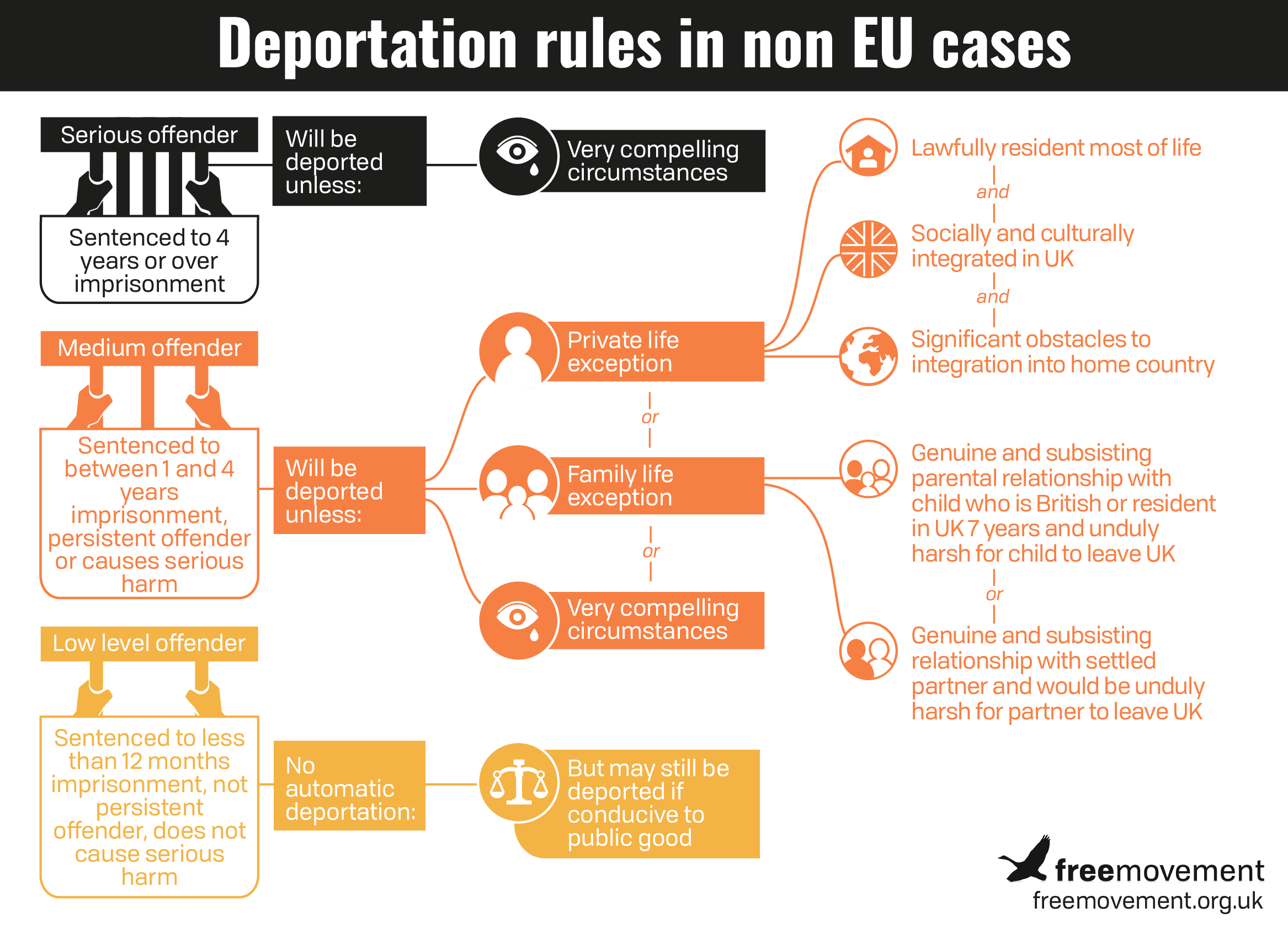- BY Nick Nason

Having a British child “not necessarily a weighty factor” in deportation cases
THANKS FOR READING
Older content is locked

A great deal of time and effort goes into producing the information on Free Movement, become a member of Free Movement to get unlimited access to all articles, and much, much more
TAKE FREE MOVEMENT FURTHER
By becoming a member of Free Movement, you not only support the hard-work that goes into maintaining the website, but get access to premium features;
- Single login for personal use
- FREE downloads of Free Movement ebooks
- Access to all Free Movement blog content
- Access to all our online training materials
- Access to our busy forums
- Downloadable CPD certificates
Patel (British citizen child – deportation) [2020] UKUT 45 (IAC) considers the importance of British citizenship held by children of people being deported from the UK.
The case concerned an appeal brought by Mr Patel, an Indian citizen, against a decision to deport him following a 2016 conviction for money laundering offences. He received a sentence of three and a half years in prison.
The First-tier Tribunal dismissed Mr Patel’s appeal against the Home Office decision to deport, finding that it was not “unduly harsh” on his British son, aged seven at the time of the appeal hearing, or on his British wife.

Mrs Patel’s “unequivocal” position was that she and her son would go with Mr Patel should he be deported to India. The family argued that the First-tier Tribunal had not properly weighed the loss of educational and other opportunities associated with British citizenship that his son would endure as a result of leaving the UK.
An Upper Tribunal panel led by President Lane was asked to consider what (if any) impact the child’s British nationality should have on the application of the “unduly harsh” test. As set out in the headnote, it found that
(3) Nationality (in the form of British citizenship) is a relevant factor when assessing whether the ‘unduly harsh’ requirements of section 117C(5) are met. However, it is not necessarily a weighty factor; all depends on the facts.
(4) The possession of British citizenship by a child with whom a person (P) has a genuine and subsisting parental relationship does not mean that P is exempted from the ‘unduly harsh’ requirements. Even though the child may be British, it has to be unduly harsh both for him or her to leave with P or to stay without P; not just harsh. Thus, some substantial interference with the rights and expectations that come with being British is possible, without the position becoming one of undue harshness to the child.
On the question of decision-makers being required to assess whether or not a partner or son would, in fact, return with a deported individual, the tribunal found (as also recorded in the headnote):
(2) In both section 117C(5) and paragraph 399(a)(ii), what judicial decision-makers are being required to assess is a hypothetical question – whether going or staying ‘would’ be unduly harsh. They are not being asked to undertake a predictive factual analysis as to whether such a child would in fact go or stay.
Mr Patel and his wife would not be able to afford private education in India, meaning that their son would have to be educated in Gujarati (which he does not speak). The child requires annual medical checkups to deal with a congenital medical condition, and his “school and friendship networks [were] ‘sources of happiness and stability'”. But the Upper Tribunal found
It was within the range of reasonable responses for [the First Tier Tribunal judge] to conclude that the disadvantages and hardships involved were not unduly harsh. We remind ourselves that the higher courts have confirmed many times that the threshold denoted by the ‘unduly harsh’ criterion is a high one.
As the tribunal says, this finding is the logical conclusion of the line of cases following KO (Nigeria) [2018] UKSC 53: see, in particular, KF (Nigeria) and PG (Jamaica), further entrenching the extremely high-bar approach to the “unduly harsh” test.
The President also confirms a further point, explaining that it had not been “expressly addressed in previous analyses essayed by the higher courts”:
(1) In its application to a “qualifying child” within the meaning of section 117D of the Nationality, Immigration and Asylum Act 2002, section 117C(5) imposes the same two requirements as are specified in paragraph 399(a)(ii) of the Immigration Rules; namely, that it would be unduly harsh for the child to leave the United Kingdom and for the child to remain.
Which should come as no surprise to practitioners.
SHARE


2 responses
The Court’s failure to address the Zambrano issue seems perverse, especially after admitting that they did not understand the recent Supreme Court decision in Patel (Appellant) v Secretary of State for the Home Department (Respondent) Secretary of State for the Home Department (Respondent) v Shah (Appellant) [2019] UKSC 59 to take a significantly different view of the need for a high threshold even in Zambrano cases concerning children: see in particular [30] of Patel?